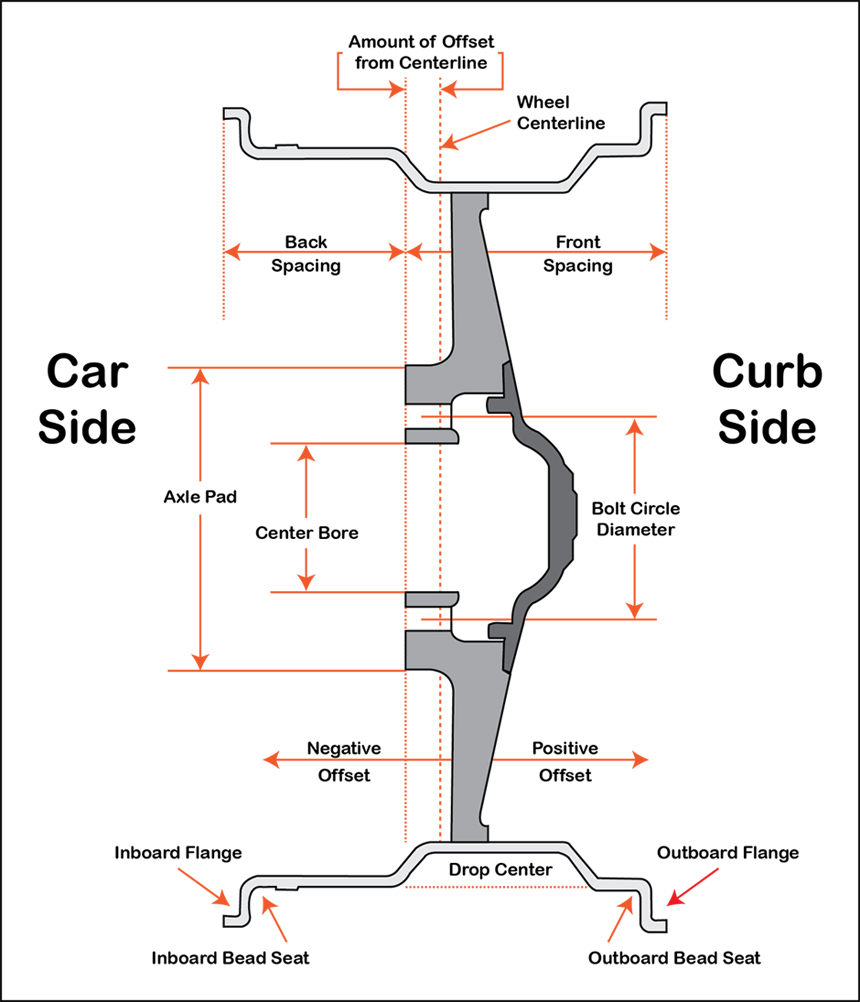Will These Wheels Fit My Vehicle?
THREE BASIC THINGS YOU SHOULD KNOW ABOUT WHEEL FITMENT
- 19 Jan2017
- admin
 ;
;Do not worry; we will break it down for you. Below we’ll list the 3 basics things you should know when buying new wheels. The information we are about to give you is crucial, and without them, your happy purchase could turn into a real mess, especially if you are on your own without the help of an industry professional.
The first thing you should know is what's the right bolt pattern for your vehicle. This is the first basic information you need to know. There are lots of talks out there about universal bolt patterns, and that is wrong. There’s no such thing about a wheel being universal and be able to fit just any vehicle. Many eBay’s and Craig’s list sellers try to fool customers with that information to get their merchandise sold fast.
If you are in the market for new wheels and the salesperson you are buying from offers you a universal wheel, run from him. He’s not a professional, and you are probably in bad hands.
The bolt pattern determines the number and position of the mounting holes to allow the wheel to be bolted to the hub. As the bolts are evenly spaced, the number of bolts determines the pattern.
The most common bolt pattern in the aftermarket wheel industry is 4, 5, 6, and 8 lug patterns, and each has many variations. For example: 5 lug pattern could vary as: 5x98, 5x100, 5x105, 5x110, 5x112, 5x114.3, 5x115, 5x120, 5x127, 5x130, 5x135 and so forth. For this reason, we strongly affirm that a universal bolt pattern wheel does not exist.
How do I know my car’s bolt pattern?
If you have access to the manual of your vehicle, that’s one way. Another sure way of getting this information is to call your car dealership.
Some car manufacturers tend to adopt a signature bolt pattern for their vehicles, and some other manufacturers may vary their lug pattern depending on each car model they make. For example, BMW uses 5x120 for almost every vehicle, Mercedes Benz uses 5x112, Porsche uses 5x130, Nissan uses 5x114.3 a lot, and Chevy varies from car to car between 5x114.3, 5x120 sometimes 5x127.
If you have the ability to remove one of your wheels from your vehicle, you can easily measure the studs distance with a measuring tape using the diagram displayed below:
The second thing you should know is what's the right offset measure for your vehicle. Offset is often mentioned as wheel back-spacing. The most basic rule, and how to understand how it works, is understanding that the offset determines how deep under the wheel's fenders will sit. If the offset is high or positive, it will sit the wheel inside the fenders; if the offset is small or negative, it will push the wheel outside the fenders.
Another basic way of taking the offset measurement is by removing the wheel of your car and facing it down on a surface, then use a long straight bar or ruler across the back of the wheel and measure the distance from the bar to the back pad of the wheel.
Every car has an offset range. This means that you don’t have to stick with a certain number all the time. Normally, vehicles have an offset range of 10 to 15mm. For example, a high offset vehicle ranges from 35 – 45mm offset, and any wheel with an offset within this range will fit. The only thing that may get in the way of such a fitment application is if you have big calipers for your brakes.
The third thing you should know, and it’s also essential, is the wheel center bore measure. After you have checked for the bolt pattern and offset measurements, the hub bore or center bore has to be considered as well. The wheel center bore is the hole in the middle of the wheel; it makes the wheel sit right on the hub of the car. If the center bore is smaller than the hub of the car, it will not fit, even if the bolt pattern and offset is right.
Normally, wheels are manufactured with a bigger center bore in the aftermarket wheel industry than what your vehicle really is. The reason for that is that one wheel could fit multiple cars since each car has its own hub size measurement. In this case, when buying your install kit, make sure you buy hub-rings that will compensate for the gap difference between the wheel center bore and hub bore of your vehicle.

